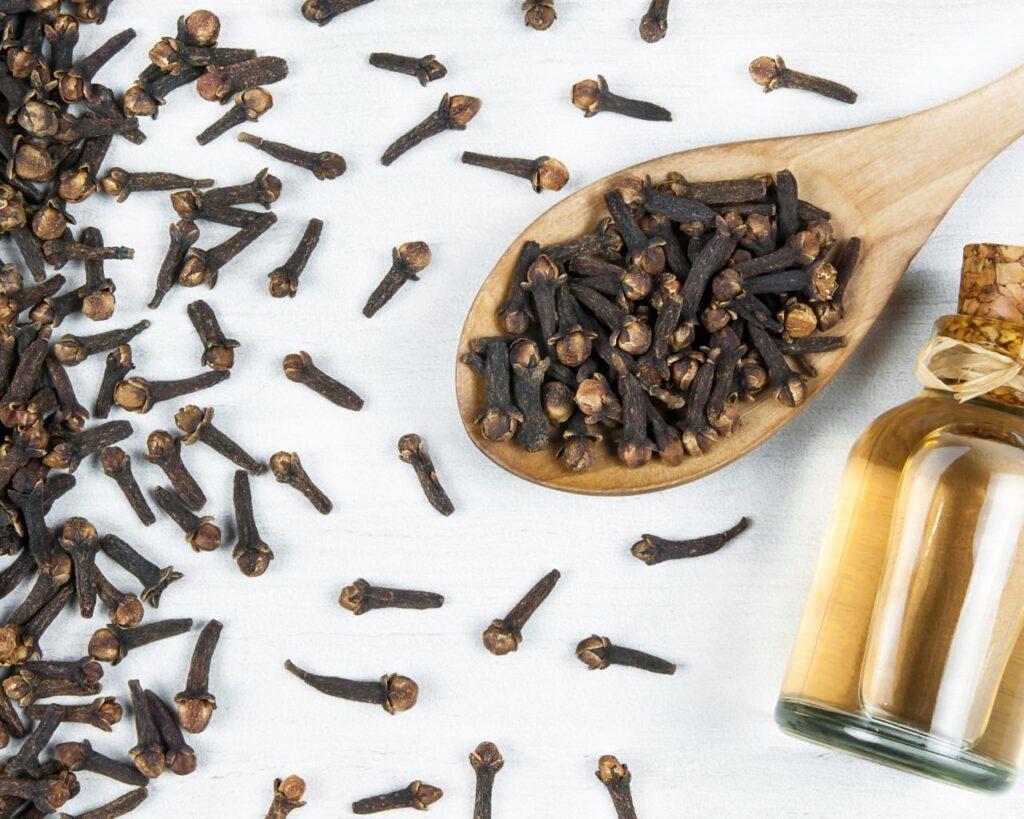Dealing with toothaches can be an excruciating experience, leaving you searching for quick and effective relief. There is a natural remedy that may bring you the comfort you seek: clove water. Clove water, derived from these aromatic spice buds, is renowned for its ability to alleviate toothache pain. We will delve into the reasons behind its effectiveness, offer preventive measures to avoid toothaches, and provide simple home remedies using clove water for soothing relief.
Reasons Clove Water Works:
The secret behind clove water’s effectiveness lies in a compound called eugenol, which is abundantly present in cloves. Eugenol is known for its powerful analgesic (pain-relieving) and anti-inflammatory properties.
When clove water is applied to the affected area, eugenol acts as a natural anesthetic, numbing the nerve endings and providing quick, albeit temporary, pain relief. Cloves have potent antibacterial properties, which can help combat the underlying infections that often cause toothaches.

Prevention Tips:
While finding relief from a toothache is essential, preventing toothaches in the first place is even better. To minimize the risk of tooth pain, consider incorporating these preventive measures into your daily routine:
- Maintain Good Oral Hygiene: Brush your teeth thoroughly twice a day and floss regularly to remove plaque and food particles, which can lead to cavities and gum problems.
- Limit Sugary and Acidic Foods: Excessive consumption of sugary and acidic beverages and foods can weaken tooth enamel, making teeth more susceptible to decay and sensitivity.
- Schedule Regular Dental Check-ups: Regular visits to your dentist for cleanings and examinations are crucial in catching potential dental issues early and maintaining oral health.
- Address Teeth Grinding: If you find yourself grinding your teeth, especially at night, talk to your dentist about getting a custom-made mouth guard to protect your teeth from damage.
Effective Home Remedies:
When you’re seeking at-home relief for toothache, consider these simple yet effective home remedies involving clove water:
- Clove Water Rinse: Prepare clove water by boiling a few cloves in water and letting it cool. Use this concoction as a mouth rinse, swishing it around your mouth for a minute or two before spitting it out. The eugenol in clove water will help numb the painful area and provide temporary relief.
- Clove Oil Application: Apply a small amount of clove oil to the affected tooth using a cotton ball or swab. The oil’s numbing effect can reduce discomfort and offer relief.
- Clove Water Compress: Soak a clean cloth or cotton ball in clove water and apply it to the painful area for 15-20 minutes. The localized application of it can provide soothing relief.
How to make it at Home?
Making clove water is a simple process.
Ingredients:
- Whole cloves (about 1 tablespoon)
- Water (1 cup)
Instructions:
- Measure the Cloves: Take about 1 tablespoon of whole cloves. You can find whole cloves at most grocery stores or spice shops.
- Crush the Cloves: To enhance the release of the active compounds in the cloves, gently crush them using a mortar and pestle or the back of a spoon.
- Boil the Water: In a small saucepan, bring 1 cup of water to a boil. You can use filtered or distilled water for better results.
- Add the Cloves: Once the water reaches a rolling boil, add the crushed cloves to the water.
- Simmer the Mixture: Reduce the heat to low and let the water and cloves simmer for about 5 to 10 minutes. This will allow the eugenol and other beneficial compounds to infuse into the water.
- Cool and Strain: After simmering, turn off the heat and let the mixture cool down. Once it has cooled, strain the liquid to remove the clove particles. Either a fine filter or filter cloth can be used for this.
- Store the Clove Water: Transfer the strained clove water into a clean, airtight container. You can store it in the refrigerator for a few days to use as needed for toothache relief.
Tips:
- You can adjust the strength of the it by using more or fewer cloves. Experiment to find the concentration that works best for you.
- Some people prefer using clove oil instead of whole cloves. If you have clove oil, add a few drops to a cup of water to create clove water.
- Remember that clove water is a temporary remedy for toothache relief. If your toothache persists or worsens, it’s essential to seek professional dental care to address the underlying issue.
Clove water is a time-honored natural remedy for toothache relief, and its effectiveness can attribute to the presence of eugenol, a potent analgesic compound found in cloves. This natural anesthetic can help alleviate pain, providing temporary comfort until professional dental care is there to help. It’s important to remember that it is not a substitute for proper dental treatment.
To maintain a healthy smile and prevent toothaches, prioritize good oral hygiene practices, regular dental check-ups, and a balanced diet. If you experience a persistent or severe toothache, consult your dentist promptly to address any underlying dental issues.
Keep on Reading: How to Make a Natural Cough Syrup with Honey, Ginger, and Black Pepper





